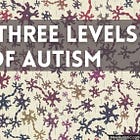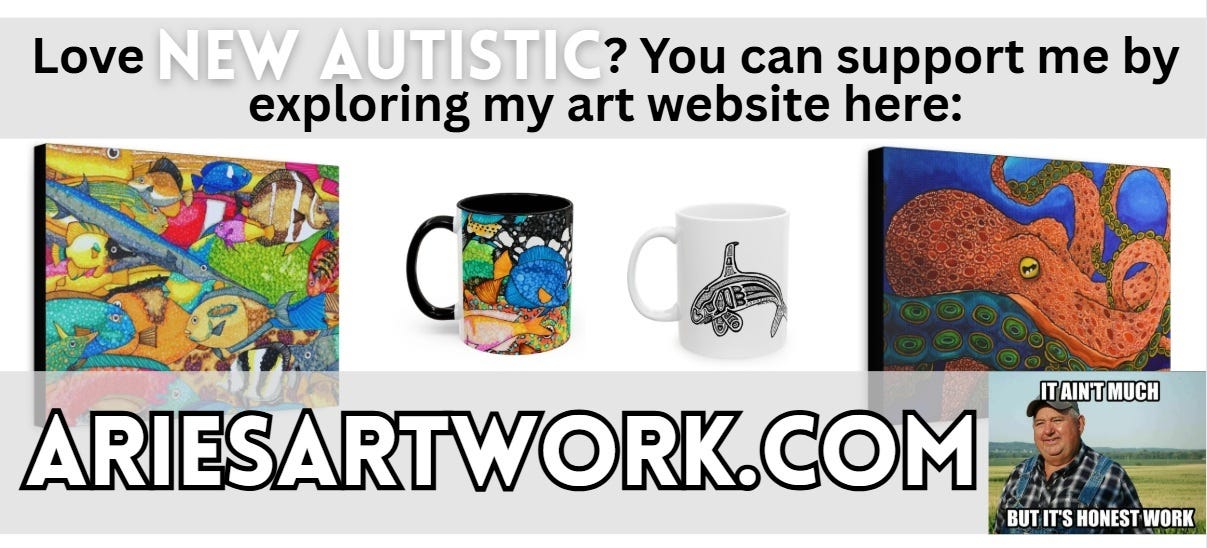How to Refer to Autistic People
Respecting Preferences: The Key to Inclusive Autism Terminology
Is calling someone autistic insensitive? What about referring to them as a person with autism? How about autist or aspie? There are so many terms out there, so which one is correct? I thought I'd write a page about how to address autistic people because there is so much information and many differing opinions out there.
As I'm sure I'll end up repeating at least a hundred times in writing for this website: When you've met one autistic person, you've met one autistic person. It's the same way in that when you've met one neurotypical person (someone not on the spectrum), you've met one neurotypical person. You wouldn't extrapolate that all other neurotypicals are the same way in appearance, demeanor, or personality from meeting one neurotypical person. Just like neurotypicals, all autistics are different as well.
From the previous paragraph, you might've gleaned what the answer is, but let me elucidate a bit more so that you might have a clearer understanding. On this website, I will use all of the non-pejorative terms interchangeably. If someone is offended by the terms I use, I apologize; no offense is meant.
Person-First Language: "Person with Autism"
Some people with autism prefer person-first terminology. That is, they don't want to be defined by their autism, so they prefer terms like "person with autism," which highlights their personhood first. Because autistic people have been historically poorly treated, many of us feel that our personhood has been denied. For this reason and many others, a good number of people with autism prefer this person-first language.
Characteristic Language: "Autistic"
Others prefer being called autistic, or perhaps they don't mind being referred to as an autistic. Personally, I prefer this terminology because it's easier to write than "a person with autism" and it also solidifies the fact that my autism cannot be removed from who I am as a person. I am the way I am because I am autistic.
Another way to think of it is that you typically refer to someone from Vietnam as Vietnamese. "He's Vietnamese and makes great pho!" is usually what someone would say, and not "He's a person from Vietnam and makes great pho!" Part of the reason this language appeals to me specifically is because in the same way you can't separate Vietnamese heritage from a person, you can't separate autism from a person, either.
Other Terminology: "Aspie" or "Autist"
Yet others prefer terms like aspie, which is short for the now-removed diagnosis of Asperger's Syndrome. A term like aspie typically would refer to those autistics who are considered as having lower support needs (which is sometimes also referred to as high-functioning, but many autistic people take issue with the term), also known as those autistic people who are Level 1. (To read about what the different levels of autism mean, check out my appropriately-named article The Three Levels of Autism.)
I've also seen the term autist thrown around, typically when referring to someone famous with autism. For example, someone might say something like "the famous autist Anthony Hopkins was diagnosed with Asperger's in his 70s." However, I have also seen this term (among others) used in the pejorative sense, so some autistic people might not like it for the potential negative connotations.
The Answer: Whatever They Prefer
Ultimately, you should refer to someone in the way that they prefer to be referred to. If someone requests that you call them autistic, do that. If someone requests that you use person-first language and refer to them as a person with autism, do that. If they're okay with being called an autist or aspie, use those terms.
It's not difficult to refer to someone in the way in which they prefer, and it costs you little to nothing to do so (aside from perhaps the negligible mental effort of remembering). So, if you aren't sure, ask. Once they tell you, remember and utilize their preferred terminology. It'll go a long way toward making the autistic people in your life feel appreciated and understood.
Thanks for Reading!
Thanks for taking time out of your busy day to spend some time with me! I encourage all of my readers to RISE (Reflect, Improve, Strengthen, & Evolve) with me because healing is a lifelong journey — it’s not always easy, but it’s always worth it. You are loved, cherished, and valued. Don’t ever let anyone ever convince you otherwise.
My commitment to bringing you FREE, well-researched, and comprehensive content means I spend considerable time and effort writing each article or post without compensation.
Want to Support Me?
The simplest FREE way you can support me is by subscribing, sharing, or leaving a comment:
I believe in keeping my content accessible to everyone, without paywalls, because I know the work I do matters. For that reason, I’m beyond grateful for any financial support! If you'd like to support me and my work, check out my art website at AriesArtwork.com to bring home something unique or find a gift for that special someone in your life:
I’ll see you again when I’ve got a new info-dump for you, my Newtistics Crew!
—Skylar Aries







